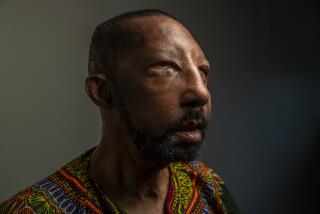Donor and recipient: a relationship with no names
- Share via
When film director Robert Altman accepted his honorary award recently at the Academy Awards, he brought up, for the first time publicly, his new heart. “Ten years ago, 11 years ago, I had a heart transplant,” he said near the end of his speech. “A total heart transplant. I got the heart of, I think, a young woman who was about in her late 30s.”
*
-- Janet Cromley
*
The disclosure was surprising not only because few in the audience had heard of his operation, but because Altman, 81, appeared to know very little about the woman who had saved his life. Yet when it comes to organ donation, such sketchy details are standard.
Recipients are given very limited information about organ donors, usually just age, gender and, occasionally, the geographical region of their home. The donor family is given similar, non-identifying information -- such as “a young mother of three” -- intended simply to reassure that the organ will be put to good use.
The goal is to protect confidentiality and privacy during an intensely difficult time and to ensure that all parties understand that the organ is a gift -- freely given -- with no expectations of contact or payment. Nonetheless, many recipients often want to thank the donor’s relatives, who in turn sometimes want to know how the recipient fared. Such communication can be emotional, particularly for donor families.
“The circumstances of an organ donor’s death are almost always, without exception, sudden and traumatic,” says Bryan Stewart, of OneLegacy, an organ recovery agency serving Southern California. “Some families want to give, but then they need to move on and close the chapter. So it’s quite common for families to respectfully decline the correspondence or to accept it but not reply.”
If the recipient wants to correspond with the donor family, he or she usually starts with the transplant center, which then forwards the correspondence to the organ recovery agency. If the donor family wishes to contact the recipient, it contacts the recovery agency. The dance is delicate, designed at each step to protect the emotional health and privacy of everyone involved.
Each year, OneLegacy arranges transplants involving nearly 400 organ donors and almost 1,200 recipients, Stewart says. From those donations, the agency coordinates hundreds of letters from families, ultimately setting up about a dozen first-time meetings.
“When it happens, it’s magical,” says Stewart. “You’re seeing these people connect in the most profound way.” He recounts one meeting in which a woman met the recipient of her husband’s heart. The recipient asked if she would like to listen to the heart, Stewart said, then held her head against his chest so she could hear it beating.
She said afterward: “Now I can understand what my gift has meant.”
More to Read
Sign up for Essential California
The most important California stories and recommendations in your inbox every morning.
You may occasionally receive promotional content from the Los Angeles Times.













